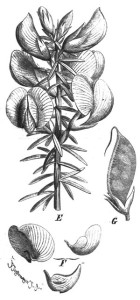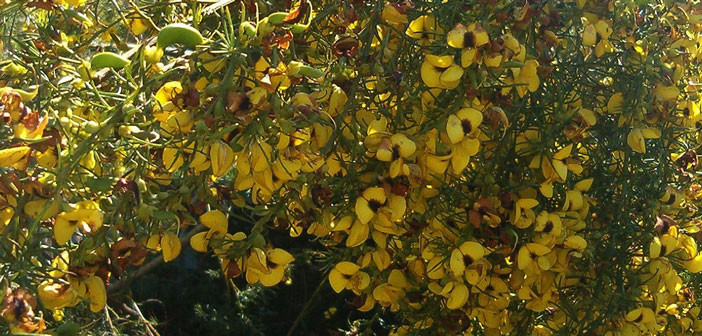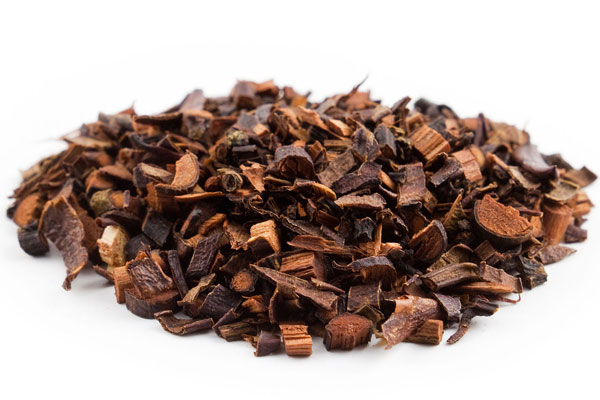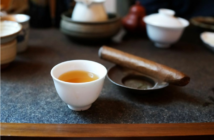 A close relative to rooibos, the Cyclopia plant (commonly known as Honeybush) was first sold commercially in the late nineties. Today, the demand for this tisane exceeds production with 70% of honeybush tea being wild harvested. The cultivated honeybush comes from a few small South African farmers who have recently developed honeybush plantations. The wonderfully sweet profile of this tisane makes honeybush a favorite for children and adults alike.
A close relative to rooibos, the Cyclopia plant (commonly known as Honeybush) was first sold commercially in the late nineties. Today, the demand for this tisane exceeds production with 70% of honeybush tea being wild harvested. The cultivated honeybush comes from a few small South African farmers who have recently developed honeybush plantations. The wonderfully sweet profile of this tisane makes honeybush a favorite for children and adults alike.
Trivia:
- Native to the Cape of South Africa.
- The first believed use of Honeybush as a tisane was in 1705, shortly after the Dutch East India Trading Company settled in what is now known as Cape Town.
- In 1882, honeybush was reportedly used by the Khoisan tribe as a treatment for coughs and respiratory infections.
- There has been significant growth in commercial production of honeybush in the last twenty years; from approximately 30 tons in 1997 to over 200 tons today.
Tips and Tricks:
- Caffeine-free, this red tisane is full of wonderful nutrients including vitamin C, potassium, iron, calcium and magnesium.
- Believed to have both antiviral and antibacterial properties, honeybush can be consumed regularly to keep germs at bay.
- Steep well, at least 10 to 15 minutes. The longer the steep, the richer the flavor.
- Honeybush received its name for the sweet smelling yellow flowers it produces. Infuse a wonderful scent in your home by gently simmering honeybush potpourri.
- The natural free radicals in honeybush are believed to help with anti-aging. Look for face creams, cleansers and masks containing this herb for younger, healthier looking skin.
- The naturally sweet flavor makes it easy to enjoy on its own.
- For a healthy cool beverage, brew some honeybush and put it on ice. It’s extremely refreshing and the perfect complement to those warm nights.
- The soothing qualities of honeybush are believed to help relieve depression, anxiety, and have even been used as a treatment for colicky infants.
- For an extra boost of vitamins, replace water with honeybush tea when making your favorite stew, sauce or even baking.
Try It:





